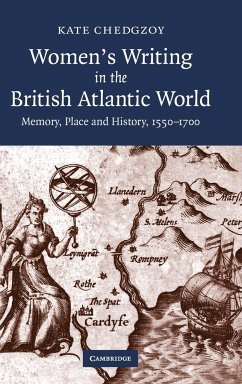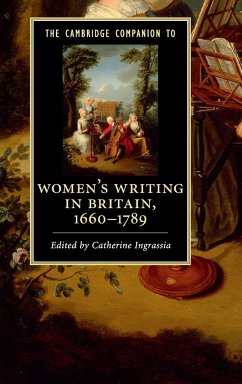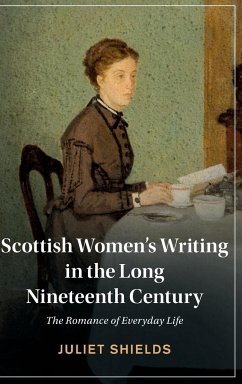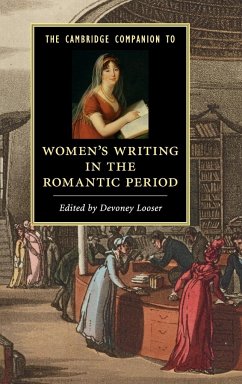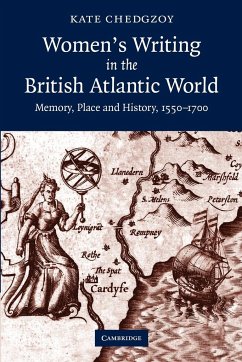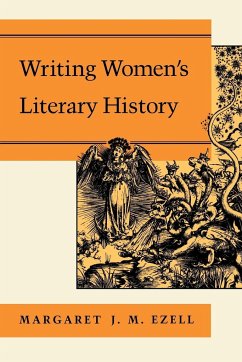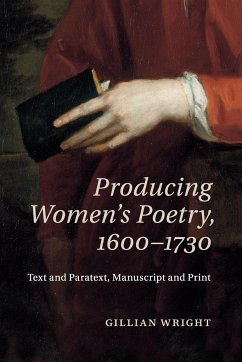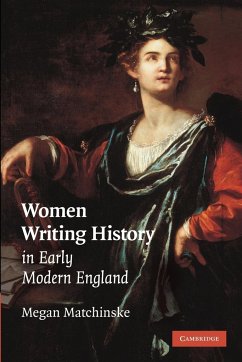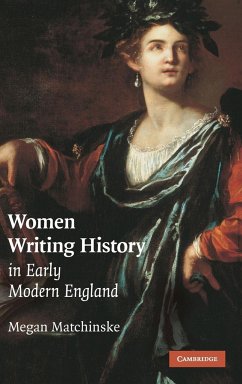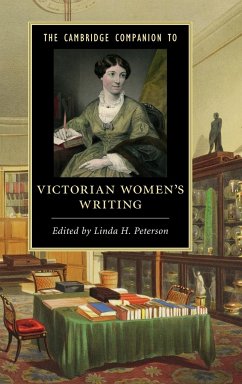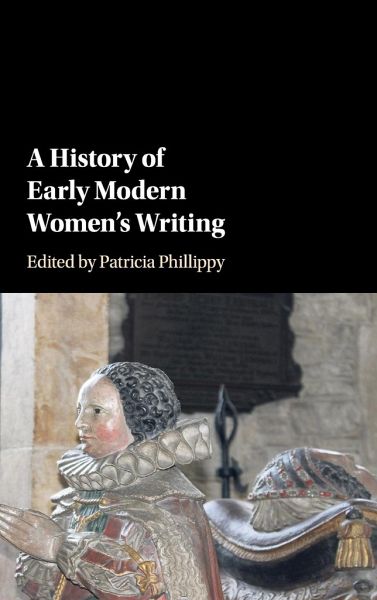
A History of Early Modern Women's Writing
Versandkostenfrei!
Versandfertig in 1-2 Wochen
144,99 €
inkl. MwSt.
Weitere Ausgaben:

PAYBACK Punkte
72 °P sammeln!
A History of Early Modern Women's Writing is essential reading for students and scholars working in the field of early modern British literature and history. This collaborative book of twenty-two chapters offers an expansive, multifaceted narrative of British women's literary and textual production in the period stretching from the English Reformation to the Restoration. Chapters work together to trace the contours of a diverse body of early modern women's writing, aligning women's texts with the major literary, political, and cultural currents with which they engage. Contributors examine and ...
A History of Early Modern Women's Writing is essential reading for students and scholars working in the field of early modern British literature and history. This collaborative book of twenty-two chapters offers an expansive, multifaceted narrative of British women's literary and textual production in the period stretching from the English Reformation to the Restoration. Chapters work together to trace the contours of a diverse body of early modern women's writing, aligning women's texts with the major literary, political, and cultural currents with which they engage. Contributors examine and take account of developments in critical theory, feminism, and gender studies that have influenced the reception, reading, and interpretation of early modern women's writing. This book explicates and interrogates significant methodological and critical developments in the past four decades, guiding and testing scholarship in this period of intense activity in the recovery, dissemination, and interpretation of women's writing.





